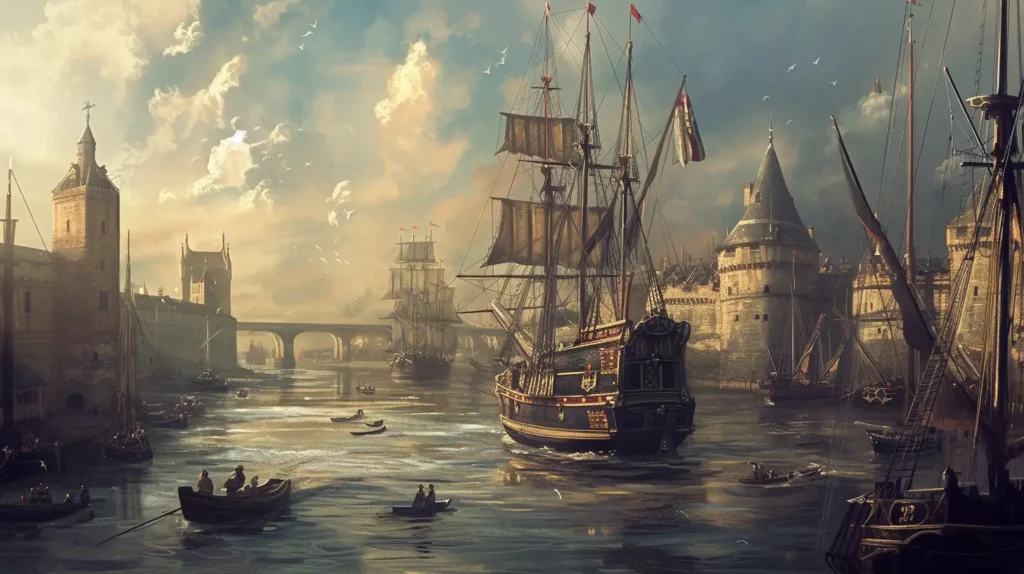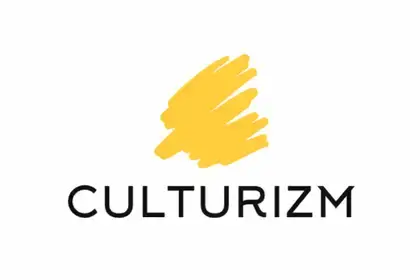In a world where change is constant, understanding contemporary relevance is key to focusing on what truly impacts our lives today. This concept helps us sift through the noise of endless information to determine what is immediately significant in areas like technology, culture, and personal growth. By grasping the essence of contemporary relevance, we can make informed decisions that align with our present needs and future ambitions.
The Significance of Contemporary Relevance
In our fast-moving world, understanding contemporary relevance offers us a valuable lens through which to view our past and present. It’s fascinating how events from bygone eras continue to shape our lives today, isn’t it?
- Relevance: This focuses on the connection between historical events and current issues, highlighting why studying history matters to understanding our times.
- Significance: It determines the weight or importance of an event in shaping modern thoughts and attitudes.
- Importance: Considering contemporary relevance helps us prioritize the learning and actions that serve us best in present times.
We use contemporary relevance as a tool to sift through vast historical data, identifying what resonates with our current societal needs.
Why Is This Important?
- Connects the past and the present
- Informs current decision-making
- Shapes our future outlook
Present-Time Value
By aligning past events with present challenges, we gain clarity on recurring patterns and potential future outcomes. This relevance acts as a bridge that helps us understand the ongoing impact of past actions and decisions on present-time circumstances.
Ultimately, leaning into contemporary relevance enriches our perspectives, guiding us to make more informed choices in a world that’s constantly evolving. It’s our compass for navigating the complexities of today while paying homage to the lessons of yesterday.
Current Challenges with Document Archives
As we venture deeper into the digital era, the focus on contemporary relevance becomes paramount, particularly when examining the archival challenges that institutions like The New York Times face with their extensive news collections.

The New York Times News Collection
The New York Times News Collection stands as a monumental repository of historical and current events. Yet, one of its most pressing challenges is maintaining the relevance of its content in a world where the sheer volume of digital data can overwhelm traditional archiving methods. Deciding what to preserve and what to discard is no simple task, as each choice could impact future generations’ understanding of our times. Furthermore, as technology advances, the necessity to digitize and appropriately tag archived materials to ensure their discoverability and longevity has increased.
Learning to Rank Digital Data
Learning to rank digital data is instrumental for modern archives, including those maintained by The New York Times. This approach involves using algorithms to intelligently sort through vast amounts of data and determine what is most likely to be relevant for current and future inquiries. For document archives, the challenge lies in developing efficient and unbiased systems that can accurately predict and enhance the availability of pertinent information. It’s a delicate balance between embracing innovative technologies and preserving the integrity of the archival process.
Historical Perspectives
As we explore historical perspectives, we recognize their contemporary relevance, providing a lens to understand our present by reflecting on the past. This examination enriches our knowledge across various domains, from the science of history to the intellectual groundings that shape our understanding of historical narratives.

Science of History
The Science of History is anchored in methodologies that allow us to systematically study historical events. In France, scholars like Marc Bloch and Fernand Braudel have significantly contributed to the Annales School, which emphasizes long-term social history. Their work underscores the importance of interdisciplinary research, blending insights from geography, sociology, and economics to form a richer, more comprehensive historical analysis.
Didactics of History
The Didactics of History refers to the methods and practices of teaching history. It’s crucial for developing critical thinking and helping students make connections between past and present. In relating to contemporary relevance, didactic strategies evolve to include interactive technologies, fostering deeper engagement with the subject matter.
Intellectual History
Lastly, Intellectual History delves into the evolution of ideas and thought over time. This field scrutinizes how concepts have been debated, adapted, and have influenced society. The intellectual history of France, for example, teems with Enlightenment thinkers who have indelibly shaped modern democratic ideals and human rights discourses. Their contributions remain deeply ingrained in contemporary political and philosophical discussions.
Contemporary Nationalism and Identity
We live in a time where the contemporary relevance of nationalism continues to shape our world. Nationalism, a sense of shared identity and purpose within a country, remains a driving force in current political and social arenas. It’s our understanding of ourselves and our place within a collective national narrative that defines national identity.

Trends in Nationalism
- Rise of populism
- Nostalgia for historical narratives
- Cultural movements
Nationalism isn’t just a historical footnote; it’s evolved and plays a critical role in how we interact with the concept of a nation today. For some, nationalism draws from a proud heritage, while for others, it’s a call to embrace progressive values and unity. It’s this duality that underscores its complexity.
National Identity Elements
- Common language
- Traditions and customs
- Political ideologies
Our approach to national identity may differ, but commonly includes elements like language, traditions, and political ideologies. As individuals, we contribute to a larger collective, where our self-awareness as part of this group informs actions and policies on a national scale.
Contemporary nationalism often navigates a thin line, presenting us with both challenges and opportunities. How we choose to harness this can lead to shared prosperity and understanding or, conversely, exacerbate division. Amid rapid globalization, our engagement with national identity continues to influence not just politics, but also the fabric of our society, ensuring that the discourse on nationalism is as relevant as ever.
Relevance of Mortality in Modern Society

In our rapidly evolving world, the contemporary relevance of mortality often takes a backseat to the bustling activities of daily life. Yet, death remains an integral facet of the human experience, shaping much of our societal structures and personal values.
Our Collective View on Death: In modern society, our perceptions of death have shifted. There’s an increasing recognition of the importance of balancing technological advances in healthcare with compassionate end-of-life care, which is highlighted by the Lancet Commission’s report on the value of death.
- Rituals and Attitudes: Attitudes towards death rituals continue to evolve, reflecting our understanding of health and healing. We see a diverse range of practices that honor the deceased, acknowledging the place of death in our cultural and social constructs as documented in studies such as the one by S. M. O’Gorman, illustrating the significance of rituals associated with death and dying.
- Statistics and Mortality: Statistical analysis offers insights into mortality trends, revealing patterns that form vital information for public health initiatives. For instance, research on sigmoidoscopy’s impact on colon cancer mortality underscores the importance of preventative care.
Our Philosophical Engagement with Death: Philosophical discussions concerning death continue to be pertinent, with scholars providing critical analysis on the subject. The philosophy of human death is diligently unpacked in works like “Death and Mortality in Contemporary Philosophy,” which encourages dialogue among phenomenology, existentialism, and analytic philosophy regarding our comprehension of death.
My Thoughts about Contemporary Relevance

In our fast-paced world, understanding contemporary relevance isn’t just beneficial—it’s essential. When we consider this concept, we’re essentially evaluating how past ideas or events mirror, inform or contrast with current trends and issues. How do we sift through historical contexts to find lessons that resonate with us today?
First, we must acknowledge that contemporary relevance is a bridge connecting our past experiences to our current lives. This bridge can guide our decisions, shape our values, and even forecast future trends. For instance, examining the contemporary relevance of Plato’s political thoughts reveals a wealth of insights into governance and society that still hold true.
- Timelessness of Ideas: The endurance of classical philosophy in modern times shows that some truths might be universal. For example, when reviewing Plato’s work, we observe foundational concepts of justice and equality that are still debated today.
- Impact on Modern Issues: Historical political theories provide context for today’s challenges. Ideas from the past offer a canvas upon which we interpret and address modern global challenges, such as those discussed in the geopolitical sphere by think tanks and academic institutions.
- Educational Value: Delving into history’s contemporary relevance enhances teaching and learning, turning what could be seen as dry facts into living, breathing lessons. It helps us see the significance of history in the present day, such as understanding the roots of current conflicts.
By embracing historical relevance in our current age, we create a dynamic dialogue between then and now, ensuring that our understanding is not just comprehensive, but also meaningful.
FAQ – Contemporary Relevance
What is contemporary relevance in English literature?
Contemporary relevance in literature denotes how modern works resonate with current themes, issues, and the audience’s lives, reflecting and often challenging today’s societal norms.
What is the meaning of current relevance?
Current relevance refers to the degree to which something is related or useful to what is happening or being talked about at the present time.
What is the meaning of the word contemporary?
The word “contemporary” means existing or happening now, and therefore seeming modern; it can also refer to belonging to the same period, or to a person of the same age as another.
What’s the meaning of relevance?
Relevance is the degree to which something is related or useful to what is happening or being talked about, indicating its importance or significance in a given context.
If you enjoyed this blog post on “Contemporary Relevance,” please take a moment to share your thoughts in the comment section below. We’d love to hear about your experience with the content.
If you want to keep reading more from us, have a look at these articles.







Thanks for sharing. I read many of your blog posts, cool, your blog is very good.